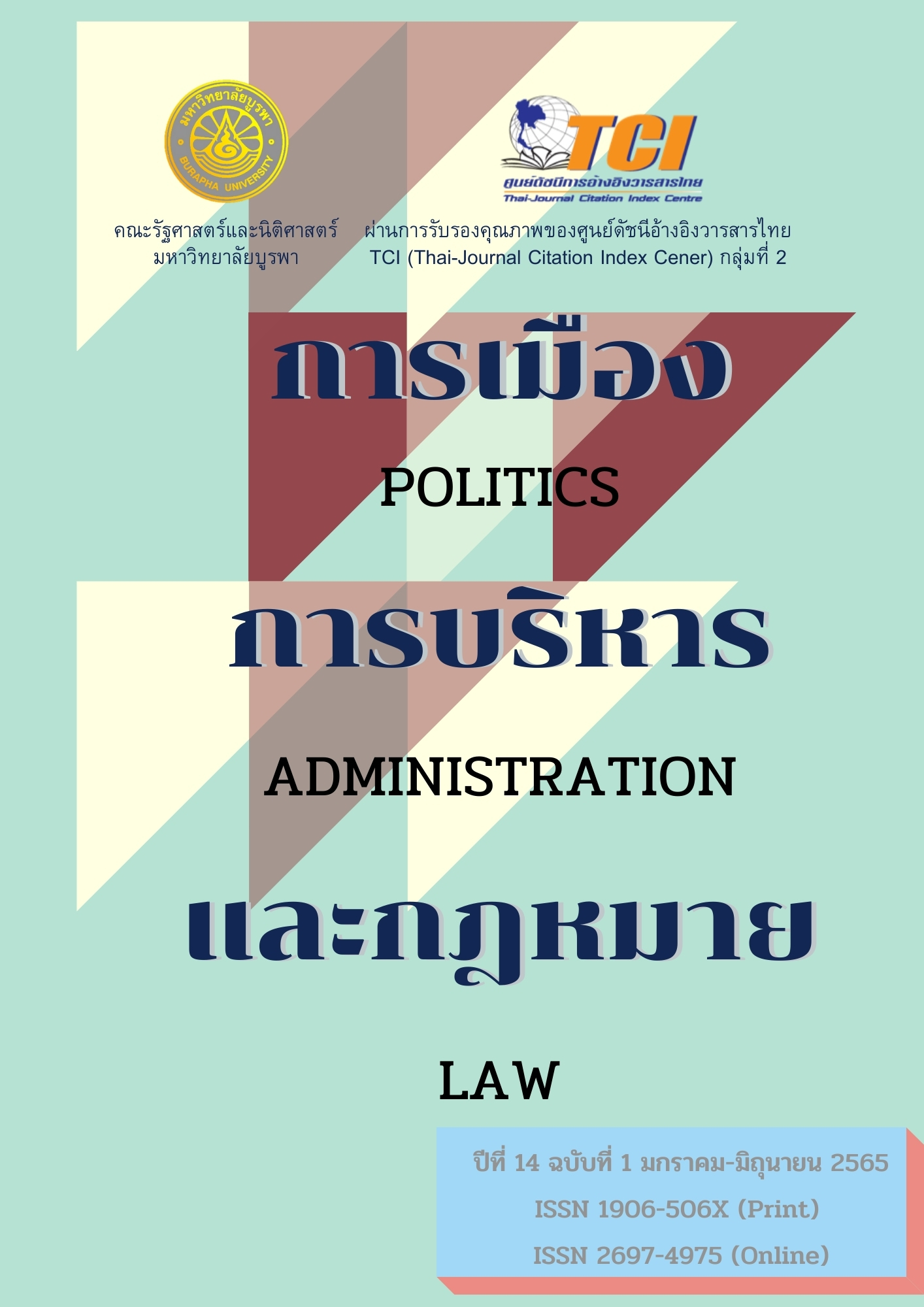The Module of Boutique Hospitality Management by Using Local Resources and Cultural Capital
Keywords:
Boutique Hotel, Cultural, Local, Resources, Northeast regionAbstract
This research project aims to study the pattern of local materials usage and local cultural services, with the objective 1) to find ways to use local cultural resources and capital for boutique hotel owner 2) create a model for boutique hotel management using local cultural resources and funds. The research methods are literature review, related research, conduct in-depth interviews with government officials, product manufacturers, local people, and boutique hotel guests which were 17 people using Delphi technique. And ending with a focus group meeting with experts to confirm all data for the module of boutique hospitality management by using local resources and cultural capital. The researcher defines the research topic on the module of boutique hospitality management by using local resources and cultural capital with the objective of finding ways to use local cultural resources and funds from using community service, government and boutique hotel operators by creating the module of boutique hospitality management by using local resources and cultural capital. Then, using the Quantitative research to study an appropriate model for boutique hotel management by using local cultural resources and capital with a sample group of 400 people. The finding revealed that the number of rooms should not be more than 100 rooms had the highest average value (x ̅= 4.21) because it was easy to look after service and control within the hotel. The location factor of the boutique hotel was at the highest average (x ̅= 4.22), because location outside the city to escape the hustle and bustle and get privacy. The factor that should bring local cultural was the highest level because to help extend income for the community and the villagers. The last method was using Focus Group meeting with experts to confirm all The Module of Boutique Hospitality Management by Using Local Resources and Cultural Capital. The conclusion found that the boutique should bring products from the community into the interior and sells souvenirs, the location of the boutique hotel can be located both in the city and outside the city, Locals should come to be part of the hotel because they understand the true culture of their area. They can create income and strong community for themselves.
References
เกริก บุณยโยธิน. (2562). ผลวิจัยอมาเดอุสและไอเอชจี เผย 3 เทรนด์อนาคตของธุรกิจโรงแรมในไทย. วันที่ค้นข้อมูล 21 ธันวาคม 2563, เข้าถึงได้จาก https://propholic.com/prop-now/ผลวิจัยอมาเดอุส และไอเอ
ชยกร ปุตระเศรณี. (2550). กลยุทธ์การจัดการดำเนินงานธุรกิจโรงแรมให้ประสบความสำเร็จอย่างยั่งยืน. วิทยานิพนธ์ปริญญามหาบัณฑิต, มหาวิทยาลัยสุโขทัยธรรมาธิราช.
ณัฐชยา ผิวเงิน. (2554). บทบาททุนทางสังคมในการพัฒนาชุมชนบ้านปลาค้าว ตำบลปลาค้าว อำเภอเมือง จังหวัดอำนาจเจริญ. วิทยานิพนธ์ศิลปศาสตรมหาบัณฑิต, สาขาวิชาพัฒนาสังคม, มหาวิทยาลัยเกษตรศาสตร์, มหาวิทยาลัยเกษตรศาสตร์.
พุทธชาด ลุนคำ. (2562). รายงานภาวะอุตสาหกรรมรายไตรมาส : ธุรกิจโรงแรม ไตรมาส 1/2562. วันที่ค้นข้อมูล 21 ธันวาคม 2563, เข้าถึงได้จาก https://www.isocnet/trendings/view/ 6B40BD51BC58AEA77350396776EEA1C80
สุจินต์ สุขะพงษ์. (2552). แนวทางการจัดการตลาดบริการสำหรับโรงแรมบูติคในเขตกรุงเทพมหานคร: กรณีศึกษำกลุ่มหนุ่มเจ้าสำอางค์. วิทยานิพนธ์ปริญญามหาบัณฑิต, มหาวิทยาลัยศรีปทุม
สุทธนู ศรีไสย์. (2551). สถิติประยุกต์สำหรับงานวิจัยทางสังคมศาสตร์ (พิมพ์ครั้งที่ 3). กรุงเทพฯ: คณะครุศาสตร์จุฬาลงกรณ์มหาวิทยาลัย.
สุธี วรประดิษฐ์. (2553). การมีส่วนร่วมของชุมชนงานสารสนเทศ สำนักงานส่งเสริมการศึกษานอกระบบและการศึกษาอัธยาศัยจังหวัดตราด. ตราด: สำนักงานการศึกษา
นอกระบบและการศึกษาตามอัธยาศัย จังหวัดตราด.
สุเมธ ตันติเวชกุล. (2554). การทรงงานพัฒนาประเทศของพระบาทสมเด็จพระเจ้าอยู่หัว. กรุงเทพฯ:สำนักงานคณะกรรมการพัฒนาเศรษฐกิจและสังคมแห่งชาติ.
ประเวศ วะสี. (2541). บนเสนทางใหม่การส่งเสริมสุขภาพ อภิวัฒน์ชีวิตและสังคม. กรุงเทพฯ: หมอชาวบ้าน.
Kleinrichert, D. (2012). Boutique hotels: technology, social media and green practices. Journal of Hospitality and Tourism, 3(3), 211-225.
Isangate. (2017). อีสาน: แหล่งประวัติศาสตร์และอารยธรรม. วันที่ค้นข้อมูล 21 ธันวาคม 2563, เข้าถึงได้จาก http://www.isangate.com/isan/
Marketeer. (2019). 3 เทรนด์อนาคตขับเคลื่อนธุรกิจโรงแรมในไทย. วันที่ค้นข้อมูล 21 ธันวาคม 2563, เข้าถึงได้จาก https://marketeeronline.co/archives/112494
Downloads
Published
Issue
Section
License

This work is licensed under a Creative Commons Attribution-NonCommercial-NoDerivatives 4.0 International License.






